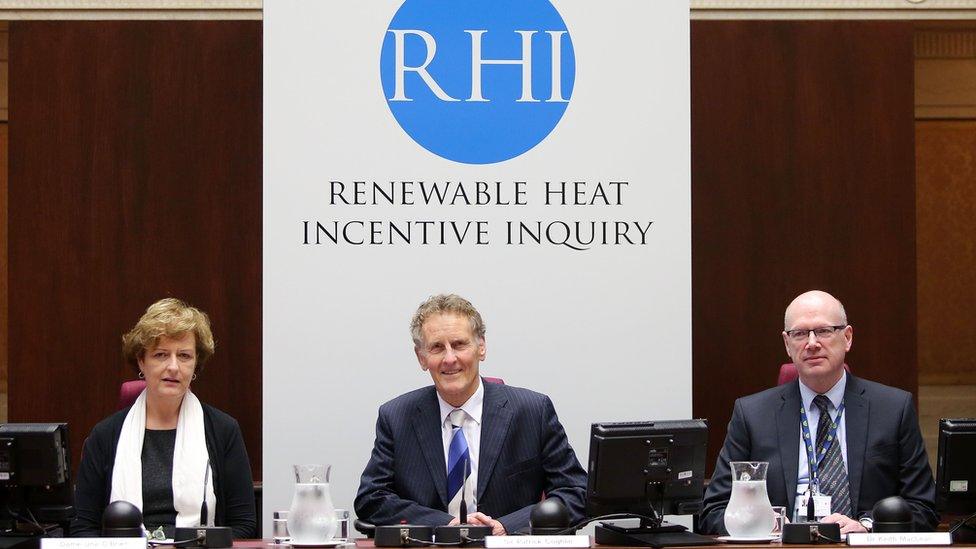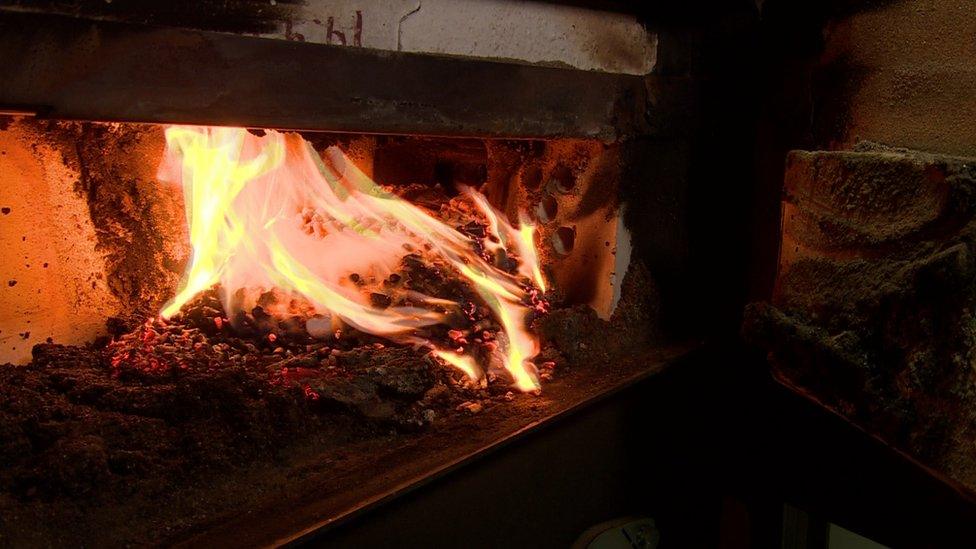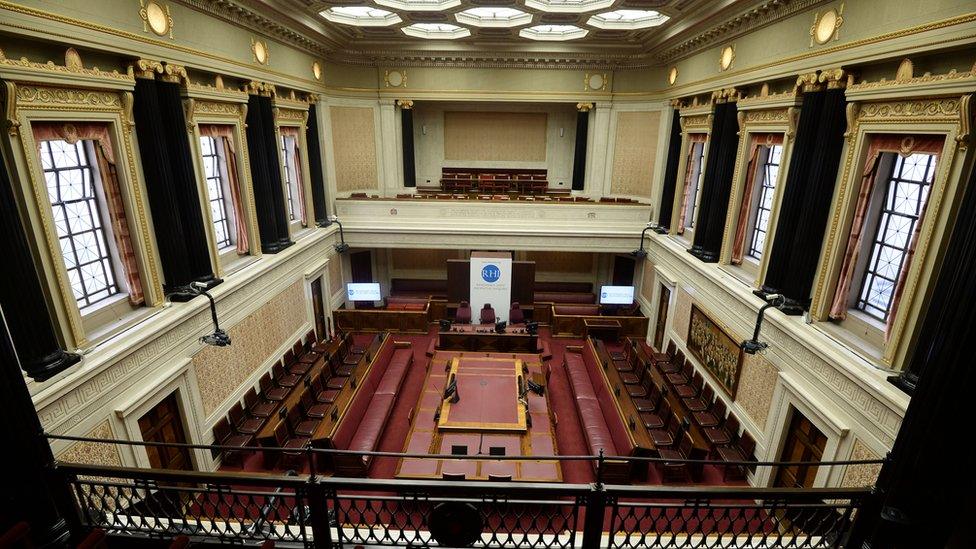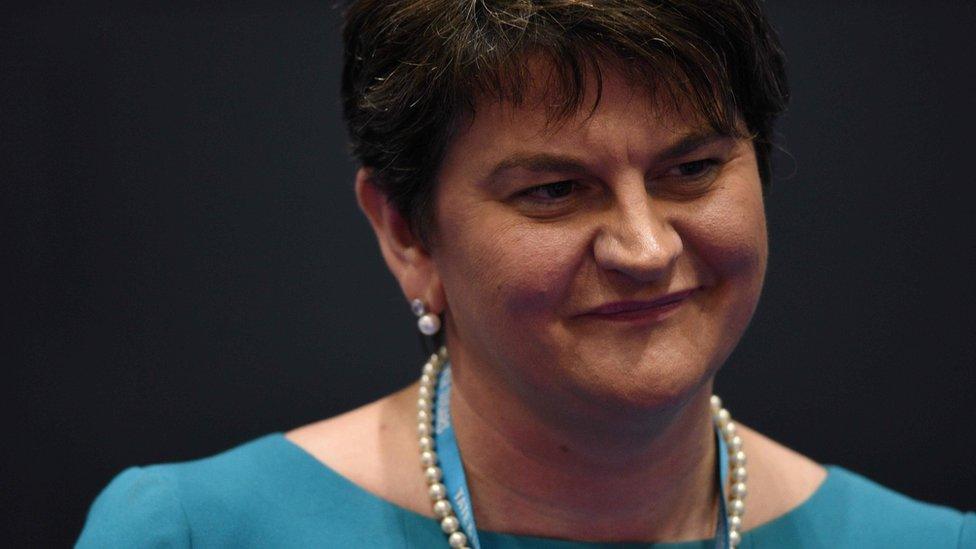Q&A: Renewable Heat Incentive (RHI) Inquiry
- Published

The RHI Inquiry panel is made of up of Sir Patrick Coghlin (centre), Dame Una O'Brien and Dr Keith MacLean
A major public inquiry into the botched Renewable Heat Incentive (RHI) scheme is under way at Stormont.
It was set up to investigate the circumstances surrounding the energy initiative after its costs spiralled.
The RHI scheme was an initiative offering financial incentives to encourage businesses to switch to using renewable fuels to generate heat.
But critical flaws meant that its claimants could earn substantial returns, far greater than intended.
That came at the taxpayer's expense and the most recent estimate put the projected overspend at £700m over 20 years, up from an original figure of £490m.
The scandal generated significant public concern and the fallout surrounding it led to the collapse of Northern Ireland's devolved administration and major a political crisis that exists to this day.
BBC News NI outlines what you need to know about the inquiry and how it is working.

The inquiry was set up in response to public concern about the scheme's huge projected overspend
What is inquiry investigating?
It has been set up to look at:
the design and introduction of the RHI scheme
the scheme's initial operation, administration, promotion and supervision
the introduction of revised subsidies and a usage cap for new scheme claimants in 2015
the scheme's closure
The inquiry will consider why cost controls in a largely similar scheme in Great Britain were not replicated in Northern Ireland; what caused a spike in applications in the autumn of 2015 that led to the massive overspend; and whether the scheme had been subject to political influence.
Who is chairing the inquiry?
Retired Court of Appeal judge Sir Patrick Coghlin was appointed to head the inquiry.
When the then finance minister Máirtín Ó Muilleoir ordered the inquiry in January, he said Sir Patrick would have absolute control its scope and execution and it would be entirely independent.
Sir Patrick was educated at Queen's University in Belfast and Cambridge University, was called to the Bar in Northern Ireland in 1970, the Bar of England and Wales in 1975 and the Bar of Ireland in 1993.
In 2008 he was appointed Lord Justice of Appeal, and held the post until his retirement in 2015.
He is also the deputy chair of the Northern Ireland Boundary Commission and a member of the Northern Ireland Judicial Appointments Commission, as well as being a privy counsellor.

The public hearings will take place in the Senate chamber at Stormont's Parliament Buildings
Who else is on the inquiry panel?
Sir Patrick is joined on the panel by Dame Una O'Brien.
She is a former permanent secretary of the government's Department of Health, and has public inquiry experience in an investigation into NHS heart surgery.
Dr Keith MacLean will act as a technical assessor, bringing experience of working as an adviser and director in the energy industry.
How will the inquiry work?
Since its inception in February, a massive evidence-gathering operation involving over one million documents has been under way in preparation for the oral hearings.
The inquiry has the power to compel witnesses and evidence and the public hearings are being held in the Senate chamber at Stormont's Parliament Buildings, beginning in November and running into 2018.
Former first minister Arlene Foster - who was in charge at the former Department of Enterprise, Trade and Investment when it set up the scheme - will be among those who will give evidence.
Civil servants, energy consultants and political advisers will also be called to speak.
The first week of hearings will be taken up by an opening statement from the inquiry's senior counsel David Scoffield QC, who will outline the context of the inquiry and the RHI scheme.
BBC News NI will provide a live video stream and text coverage of the public hearings.

Democratic Unionist Party leader Arlene Foster is expected to give evidence to the inquiry in 2018
When will the inquiry issue its report?
The inquiry team has said it is impossible to give a precise estimate on how long it will take to carry out its work.
But public evidence hearings are set to continue well into 2018 and Sir Patrick and his panel will then have to assess the evidence and write a report after that.
Will the inquiry find anyone guilty?
No, that is not its purpose - a public inquiry is not a trial.
Instead, it will seek to establish the facts surrounding the scheme, through investigation of documents, witness statements, and evidence hearings.
If it does uncover potential criminal activity, it will refer that to the police.
How much will the inquiry cost?
It is not clear how much the inquiry will cost, but an indicative budget released earlier this year suggested a figure of more than £4m.
But the inquiry team has said some factors could affect that figure.
The full cost will be revealed once the inquiry has finished its work.